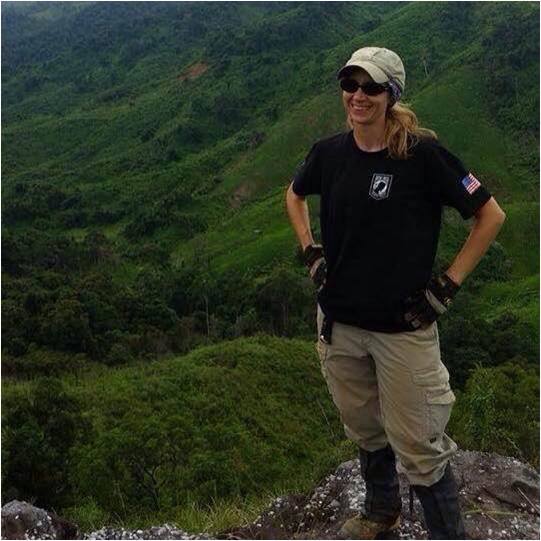For this week’s alumni interview, we are excited to feature Dr. Mary Megyesi, PhD, D-ABFA! Dr. Megyesi is a board-certified forensic anthropologist currently working for the Defense POW/MIA Accounting Agency (DPAA), formerly Joint POW/MIA Accounting Command, in Honolulu, Hawaii. In this position, she actively works to identify remains of missing military service members from past conflicts and has led archaeological excavations searching for their remains all over the globe. Currently, Dr. Megyesi leads the Cabanatuan Project. The aim of this project is to identify approximately 1,000 unknown individuals that died during the Second World War at the Cabanatuan Prison Camp in the Philippines. This work is challenging, as most identification efforts for this project involve complicated forensic anthropological methods including commingling (i.e., where bones of several individuals may be mixed) and the ability to retrieve useable DNA samples/isotopic values in poorly preserved remains. Needless to say, despite these obstacles, she continues to do this important work.

Dr. Megyesi first became interested in forensic anthropology in high school. She recalls the book Bones: A Forensic Detectives’ Casebook by Drs. Ubelaker and Scammell, making a huge impression on her future career path. She followed these interests during her undergraduate years at the University of Georgia, where she first took an osteology course. It was here where she said, “Everything just clicked”. Dr. Megyesi went on to further her studies in Human Biology at the University of Indianapolis with Dr. Stephen Nawrocki. Here, she composed research on estimating the postmortem interval from decomposing human remains for her master’s thesis, which is commonly known as the total body score using accumulated degree days method. After graduating from UIndy, she joined MSU as a doctoral graduate student in forensic anthropology, studying under her adviser, Dr. Norm Sauer. During her time at MSU, Dr. Megyesi published several first-authored articles including a case study on cerebral palsy exhibited in the skeleton, a test of the Lamendin aging method on historic samples, and she collaborated with medical anthropologist Dr. Linda Hunt to explore the impact of racial and ethnic variables on biological studies. Apart from research, Dr. Megyesi was active in the Graduate Students of Anthropology (GSA). She fondly remembers the workshops and seminars that the students put on each year, remarking that the progression from “what the heck is going on?” to leading panels was an incredible journey. Additionally, Dr. Megyesi was involved with forensic casework at the MSUFAL. This experience, the interaction with the medical examiner’s office, and with local law enforcement in Michigan, contributed to a broad perspective in forensic anthropology. This background has been crucial and beneficial for ensuring success and flexibility in her current position at the DPAA. Dr. Megyesi graduated from the program in 2009 and continued her career in Honolulu. While Hawaii is extremely beautiful with access to gorgeous scenery and diverse foods, Dr. Megyesi misses the delicious sub sandwiches from Jimmy Johns. Trust us, we love Jimmy Johns too, especially their ability to deliver to our offices.

When asked what advice she could give to current students interested in forensic anthropology, Dr. Megyesi stressed flexibility, especially in the type of job you might think you want after graduation. She thinks it is rewarding to follow your interests as they might lead you to new places. That is sound advice and all of us here at the MSUFAL would agree.
Thank you Dr. Megyesi for taking some time to speak with us about your forensic anthropology trajectory and time at MSU! Go Green!
Authored by: Kelly Kamnikar
Leave a Reply